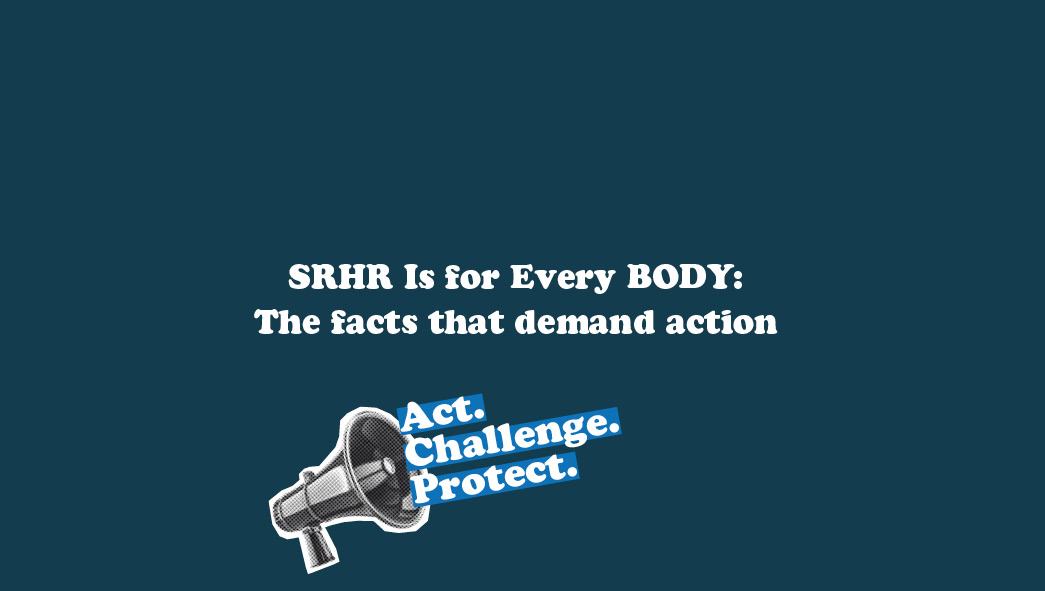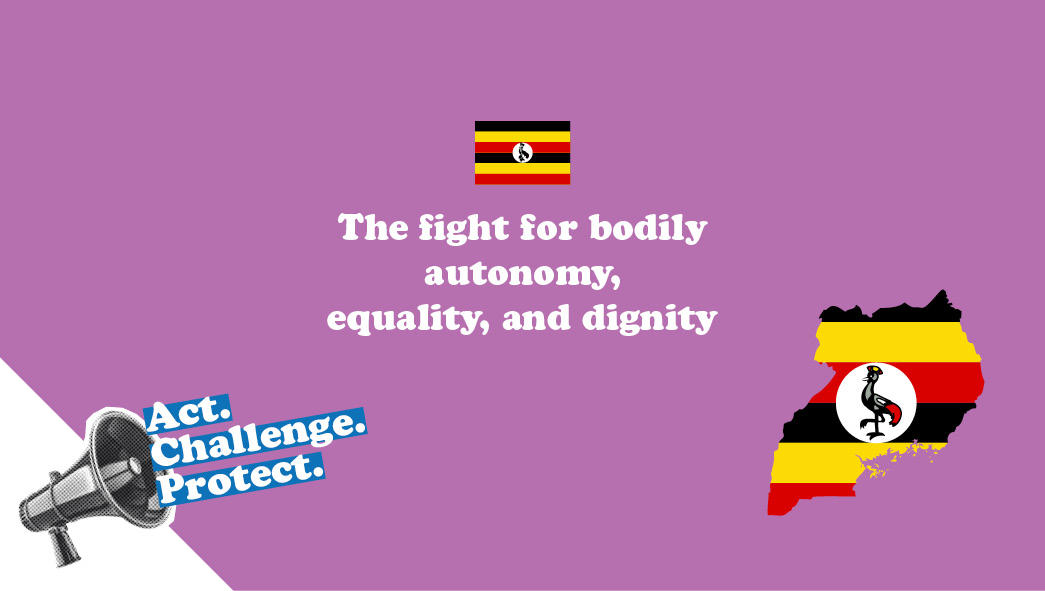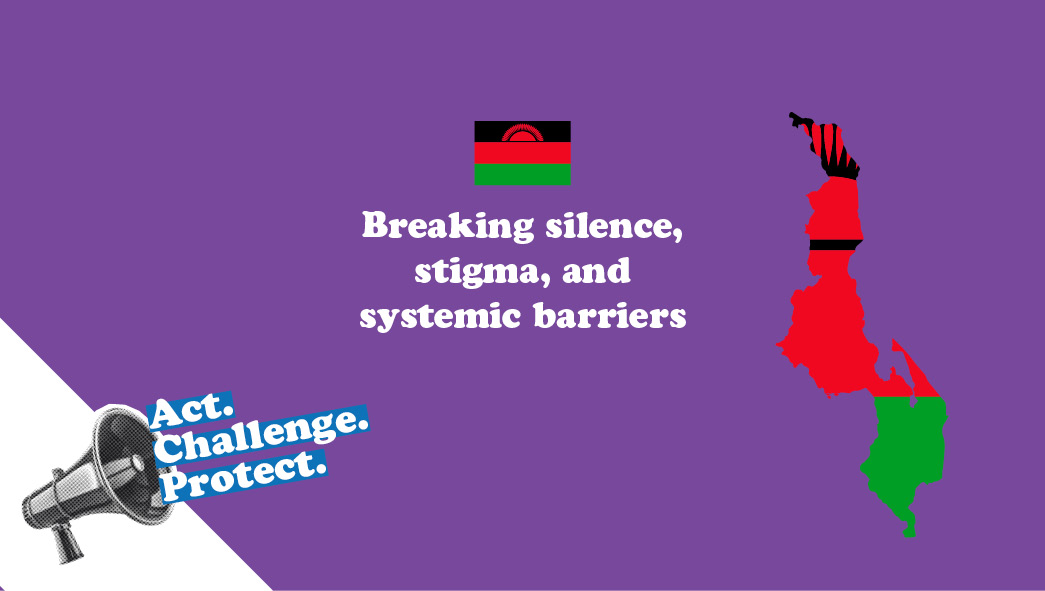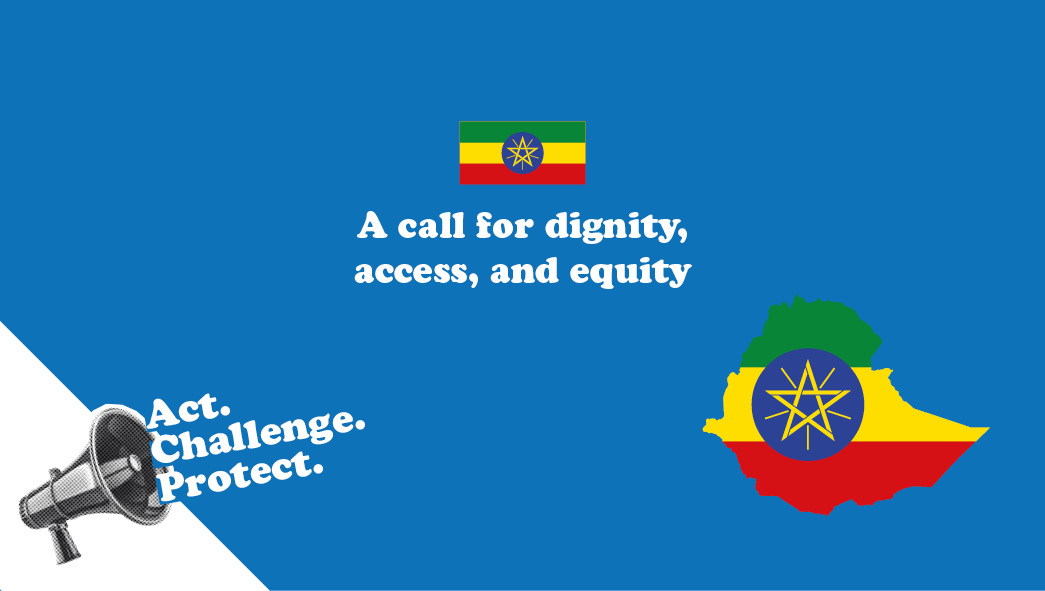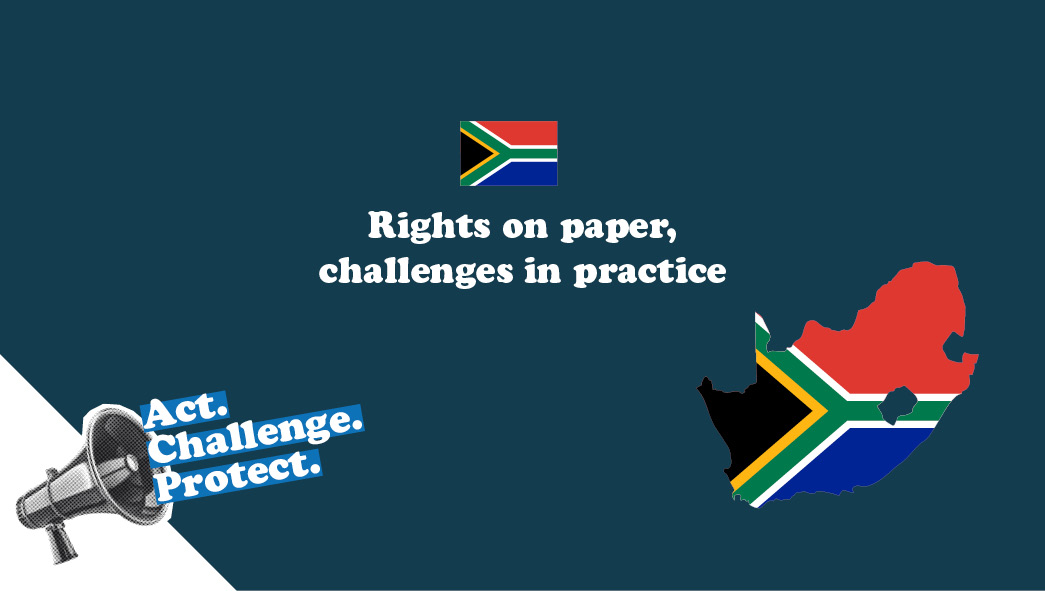SRHR is for every BODY: The facts that demand action
#ActForSRHR | #SRHR4All | #VoicesForSRHR
Across Africa, too many people are still denied the right to make choices about their bodies. Whether it’s the inability to access contraception, unsafe abortions, the criminalisation of identities, or gender-based violence – the message is clear: sexual and reproductive health and rights (SRHR) are under threat.
But it doesn’t have to be this way. The #ActForSRHR campaign calls for urgent, collective action:
Act. Challenge. Protect.
We demand a future where SRHR is for every BODY.
This isn’t just about statistics. It’s about lives cut short, rights denied, futures derailed. The numbers below tell a powerful story – one that calls us to #ActForSRHR.

Why SRHR Matters
Across the continent, harmful social norms, unequal power dynamics, outdated laws, and under-resourced health systems prevent people from accessing the care they need. While women and girls bear the brunt of SRHR violations, everyone is affected — including men, LGBTQI+ communities, people with disabilities, and adolescents.
Men need SRHR services too. Yet due to the feminisation of health and rigid ideas of masculinity, services are often not designed with men in mind. That has to change. Seeking SRHR support is one way men can care for their own health and challenge harmful norms.
The facts speak for themselves:
“In Latin American and Africa, the majority (approximately 3 out of 4) of all abortions were unsafe. In Africa, nearly half of all abortions occurred under the least safe circumstances.” (Source)
SEXUAL HEALTH
The right to a safe, respectful, and pleasurable sexual life
- Over 79 million girls and women in sub-Saharan Africa have experienced rape or sexual assault before turning 18. (Source)
- 36% of women in South Africa experience physical or sexual violence in their lifetime
- (Source)
- 42% of women and girls in East and Southern Africa experience gender-based violence. (Source)
- Africa has the highest rate of women murdered by partners or family (femicide). 3.1 per 100 000 women killed by partners or family. (Source)
- Over 230 million girls and women have undergone Female Genital Mutilation (FGM), with Africa accounting for 144 million – almost half of the total number. Without accelerated action, 68 million more girls worldwide face this risk of FGM by 2030 meaning more African girls are at risk. (Source)
REPRODUCTIVE HEALTH
Access to contraception, maternal care, safe abortion, and fertility support
- Malawi: Over 141 000 unsafe abortions occur annually, contributing to 6–18% of maternal deaths. (Source)
- 17.2% of maternal deaths are among adolescent girls aged 15–19. Adolescent pregnancies significantly contribute to maternal deaths in Uganda. According to the World Health Organization (WHO), approximately 20% of maternal deaths in Uganda occur among girls aged 15–19. (Source)
- Post-abortion care: The Ugandan government spends $14 Million each year treating unsafe abortion complications, yet it is illegal in most circumstance. (Source)
- Ethiopia: In Ethiopia, between 46% and 91% of people get family planning after abortion. (Source)
- Only 25.4% of women in sub-Saharan Africa use modern contraceptives. Chad has the lowest usage at 4%, while Namibia leads at 60.5%. (Source)
- Adolescent pregnancy rates in East and Southern Africa are more than double the global average. Rates range from 66.9 to 85.9 births per 1,000 girls aged 15–19. (Source)
SEXUAL RIGHTS
The right to live, love, and express your identity freely
- Only South Africa allows same-sex marriage (since 2006). (Source)
- 31 out of 54 African countries criminalise consensual same-sex relationships. (Source)
- Uganda’s 2023 Anti-Homosexuality Act includes a death penalty clause. (Source)
- Namibia removed laws against same-sex relationships in 2024. (Source)
- 77% of South African youth support rights and protections for LGBTQI+ people. (Source)
REPRODUCTIVE RIGHTS
The freedom to choose if, when, and how to have children
- Approximately one in five adolescent girls in Africa becomes pregnant before the age of 19. In 24 countries, this rate exceeds 25%, underscoring the need for youth-friendly reproductive health services. (Source)
- In Uganda, 17.2% of pregnancy-related deaths are among girls aged 15–19. (Source)
- 25% of Ugandan women have their first child before age 18. (Source)
- 45.75% of adolescents in Zimbabwe use birth control. (Source)
- Just 18.87% of adolescents across sub-Saharan Africa use birth control. (Source)
ENABLING ENVIRONMENT
The systems, laws, and services that make SRHR real
- Malawi and Uganda only allow abortion to save a woman’s life. (Source 1 and Source 2)
- In Malawi, women face 7 years in prison for abortion. (Source)
- Gabon decriminalised same-sex relationships in 2020. (Source)
- South Africa is the only country in Africa with constitutional protections for LGBTQI+ people. (Source)
- Many African countries still do not offer sexuality education, especially in rural areas. (Source)
Take action now
- Join the movement online: Use hashtags #ActForSRHR, #SRHR4All, #VoicesForSRHR
- Start conversations. Whether it’s at school, at home, or in your faith community, your voice matters.
- Demand change: Call on leaders to pass fair SRHR laws and fund accessible, youth-friendly, gender-transformative services.
- Support inclusive healthcare: Advocate for services that include everyone — women, men, LGBTQI+ people, adolescents, and persons with disabilities.
- Follow our campaign at menengageafrica.org and share your voice!
Why your voice matters
Behind every number is a real person – someone denied care, silenced, or put at risk.
Every time you speak up, you help break the silence, challenge shame, and stigma and push for justice.
Together, we can build a future where every BODY is respected, safe, and free.
Let’s Act. Let’s Challenge. Let’s Protect.
SRHR is for every BODY. And every voice makes this real.

